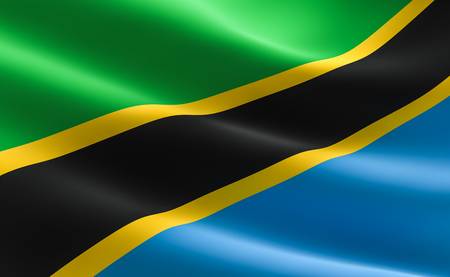By Edrine Wanyama |
The Collaboration on International ICT Policy for East and Southern Africa (CIPESA) has made a submission on the proposed amendments to Tanzania’s controversial Electronic and Postal Communications (Online Content) Regulations, 2020 that regulate online content service providers, internet service providers, application services licensees, and online content users.
On August 24, 2021, the government made a public call for comments on proposals to amend the 2020 Regulations, which entrenched the licencing and taxation of bloggers, online discussion forums, radio and television webcasters, and repressed online speech, privacy and access to information. The move towards amending the Regulations follows a series of concerns expressed in 2017, 2018 and 2020 over the regressive and repressive nature of online content regulation in the country, and its detrimental effect on freedom of expression, access to information, and the right of establishment of media.
The proposed 2021 regulations largely reflect the previously issued regulations. While they have some positive elements, they largely fail to address the threats posed to human rights defenders, political dissidents, journalists, academics, civil society organisations and actors.
On a positive note, the proposed regulations reduce licence application fees, as well as annual and renewal fees charged for online media content services and online content aggregators. Thus, online media content service providers will pay application fees of TZS 50,000 (USD 22) down from TZS 100,000 (USD43), initial licence fees of USD 217 from USD 433, annual licence fees of USD 217 from USD 433 and renewal fees of USD 43 from USD217.
The regulations also remove some ambiguous specification of obligations of service providers, such as the proposed deletion of the current regulation 9 (d) which potentially censors a broad variety of content by imposing on service providers the obligation to filter what is considered “prohibited content.” Regulation 9 (d) of the EPOCA Regulations of 2020 requires online content service providers to, “use moderating tools to filter prohibited content.”
Furthermore, under regulation 3, some level of certainty in the scope of definitions is provided especially for “online media content services” and “online content aggregators”, which are lacking in the current regulations. The proposed regulations also make attempts to define and narrow the scope of categories of licences by removing all fees that were earlier imposed on online content relating to education and religion, and fees chargeable for the provision of Online Content Service Licence Category B (Simulcasting radio and television).
However, the proposed regulation maintains broad and vague definitions, such as of “hate speech”, which could potentially be misused against individuals, media and private sector players.
Moreover, the licensing requirements under Part II of the EPOCA regulations of 2020, which have not been proposed for amendment, are still prohibitive with very heavy penalties of not less than five million shillings (USD 2,157) or 12 months imprisonment, or both, for operating without a license from the Tanzania Communications Regulatory Authority (TCRA).
Further, the process of applying for a licence under regulation 6 remains tedious, requiring the applicant to furnish TCRA with extensive information including personal information. This comprises certified copies of certificate of incorporation or certificate of registration, tax identification number, tax clearance certificate, national identity cards, and list of owners and management teams, curriculum vitae of staff, editorial policy guidelines and any other documents required by the authority.
The proposed amendments do not make any attempt to address the wanton restrictions laid down in the Third Schedule to regulation 16 on prohibited content. This includes content in paragraph 1 on sexuality and decency, content on personal privacy and respect for human dignity which extends to insults, slander and defamation or exposes news related to a person’s privacy under Paragraph 2(b).
Further, there are restrictions on content on public security, violence and national security (Paragraph 3), content that is considered to be disrespectful of religion and personal beliefs (paragraph 7), public information that may cause public havoc and disorder (paragraph 8), use of bad languages and disparaging words (paragraph 9) and false, untrue and misleading content (paragraph 10).
The scope of prohibited content under the Third Schedule is wide and ambiguous, and the provisions facilitate curtailment of freedom of expression and access to information.
Additionally, the schedule prohibits publication of “content with information with regards to the outbreak of a deadly or contagious disease in the country or elsewhere without the approval of the respective authorities.” The penalty for breach of regulations is a fine of not less than five million Tanzanian shillings (USD 2,174), imprisonment for not less than 12 months, or both. This prohibition undermines freedom of expression and access to health information as it provides room for suspension of content.
Regulation 9(g) maintains the status quo of the obligations of online content service providers to ensure that prohibited content is removed immediately upon being ordered by TCRA. This ultimately means the sweeping powers of the authority to determine what content is available for public consumption are still on the statute books. Such powers are also a potential tool for censorship of content and hinder free expression and access to information.
The proposed amendments to the regulations come a few months after the death of Tanzania’s former president, John Magufuli. His reign was characterised by systematic clampdown and curtailment of freedoms including of expression, access to information, assembly and associations. The period before Magufuli’s death was also characterised by a lacklustre response to the Covid-19 pandemic.
The analysis concludes that the proposed amendments provide some ray of hope especially in providing some degree of certainty in definition of key terms and reduction of application and licensing fees. However, the proposals are not sufficient to tackle the deep concerns in the 2020 regulations.
You can read the full submission here.

